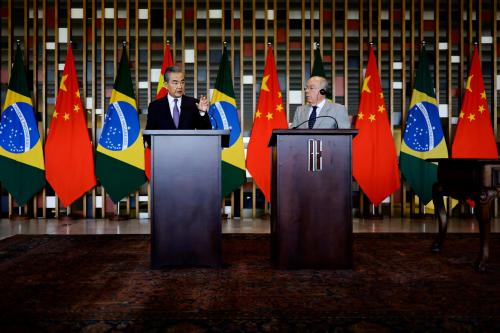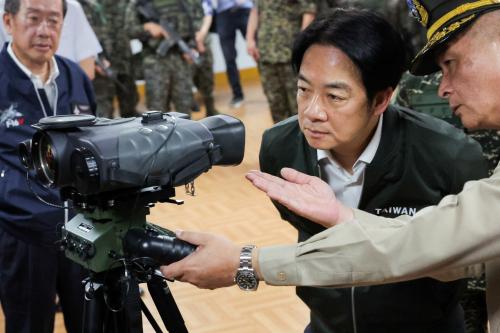Among the important accomplishments by President Barack Obama in his first 100 days has been a major step forward in U.S. relations with our neighbors in Latin America and the Caribbean.
Obama’s early meetings with Brazil’s President Lula da Silva and with President Felipe Calderón of Mexico went well, and he accomplished his objectives at the Fifth Summit of the Americas. He conveyed an attractive approach to Latin America that is consistent with his overall worldview: confident, open, genuinely interested in consultation but also committed to expressing U.S. objectives and ready to move away from unilateralism and presumption without being defensive.
The substance and style of his prepared address, his informal comments and his banter and body language, as well as his thoughtful remarks at the final press conference, were all positively received.
Courtesy paid off
The improvement in the atmospherics of official U.S.-Latin America relations is stunning. Criticism voiced by Newt Gingrich and others about Obama’s supposed weakness in exchanging friendly smiles and a handshake with Hugo Chávez, in welcoming expressed openness to Raúl Castro and in reassuring Bolivia’s Evo Morales that the United States will not support the violent overthrow of his government are frozen in outmoded stances from the folks who invented the ”axis of evil.” As a well-known Latin-American saying puts it, “courtesy does not weaken courage.”
But friendly visits, photo-ops and well-crafted statements cannot substitute for implementing the policies that the new administration now needs to pursue in the Americas.
• First, the administration should move now to gain congressional approval of the already negotiated free trade agreements with Panama and Colombia; expand the Inter-American Development Bank’s capital, needed to fund infrastructure and energy projects; and provide lending for the microfinance and social development the president announced in Port of Spain.
• Second, the administration should keep focused on the closest neighbors of the United States-Mexico and countries of Central America and the Caribbean in order to work on the shared concerns posed by their unusual degrees of demographic and economic integration with the United States.
The most important issues to address soon are new approaches to the narcotics trade, the related issues of arms and financial flows going south and a new immigration policy. None of these are easy, but the administration should tackle them this year.
• Third, Washington should further develop strategic cooperation with Brazil, both within the hemisphere and beyond, on energy, especially from renewable sources, and on trade, infrastructure, regional stability and global governance.
• Fourth, the administration should cautiously explore the prospects for rapprochement with Venezuela and Bolivia by attempting mutual confidence-building through limited and reciprocal steps, starting with the renewed exchange of ambassadors.
But the president and all of Washington should be prepared for the likelihood that rising domestic frustration and their personal qualities will push Chávez, Morales, or both, back to invective. If either or both revert to attack, as they well may, the administration should use the rope-a-dope technique that Muhammad Ali demonstrated so brilliantly: avoid being an easy target while contenders flail away.
• On Cuba, the Obama administration has begun well, but carefully: not only reversing the hardening of sanctions on travel and remittances the Bush administration imposed, but doing away even with some prior restrictions and announcing a willingness to facilitate investment in improved communications, including establishing fiber-optic cable and satellite connections between the two countries.
The administration took another symbolically important step by indicting Luis Posada Carriles for his alleged terrorist activities against Cuba, reversing years of previous unwillingness by U.S. authorities to do so.
Keeping it simple
And Obama’s simple statement that the United States seeks a new relationship with Cuba was important, precisely because it was not accompanied, as statements by the previous administration had been, by calling first for change in the Cuban regime.
Navigating the next stages in the U.S.-Cuba relationship will be a complex task, for both sides have to overcome years of distrust, mutual hostility, propaganda and domestic sources of resistance to even symbolic changes.
The guiding principles for the Obama administration should be to improve the prospects for healthy relations in the medium term, avoid being trapped into letting Cuba dictate the pace of steps the United States should take in its own interest, and remain true to the basic tenets of U.S. policy, including a commitment to the protection of individual human rights.
Letting Latin American nations take the lead, without discouraging their efforts, is probably the best course for now.



Commentary
Op-edObama off to Good Start in Latin America
May 4, 2009